Recent Fire Damage Posts
Renters Insurance and Fire Damage: What You Need to Know
4/4/2023 (Permalink)
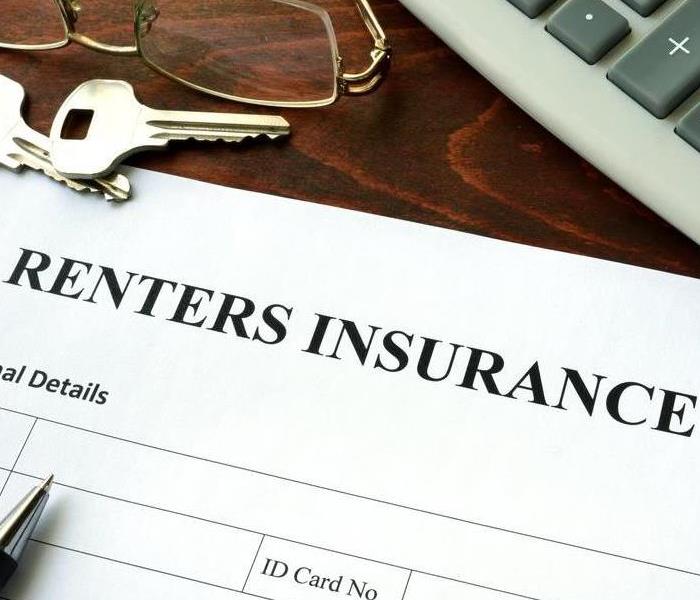 It is always good to have renters insurance incase of a fire emergency in your home.
It is always good to have renters insurance incase of a fire emergency in your home.
As a renter, it's important to have renters insurance to protect your personal belongings and cover any damages to the rental unit. One of the most common risks that renters face is fire damage. Therefore, it's important to understand whether renters insurance covers fire damage or not.
The short answer is yes, renters insurance generally covers fire damage. However, the coverage and amount of coverage can vary depending on your policy and insurance provider. Renters insurance typically has two types of coverage: personal property coverage and liability coverage.
Personal property coverage protects your personal belongings, such as clothing, electronics, and furniture, from damage caused by fire, theft, or other covered events. If your belongings are damaged or destroyed in a fire, your renters insurance policy will pay to repair or replace them up to the policy limit.
Liability coverage protects you if you're held responsible for damage to someone else's property or for injuries sustained by someone while on your rental property. For example, if you accidentally start a fire in your apartment that spreads to your neighbor's unit, your renters insurance policy may cover the damages to their property.
It's important to note that while renters insurance covers fire damage to your personal property and liability, it may not cover the physical structure of the rental unit itself. That's because the landlord is typically responsible for insuring the building and any structural damage caused by fire or other covered events.
Therefore, it's a good idea to check with your landlord and insurance provider to make sure you have adequate coverage in case of a fire. You may also want to consider additional coverage options, such as loss of use coverage, which covers the cost of temporary living expenses if your rental unit becomes uninhabitable due to fire damage.
In addition to having renters insurance, there are steps you can take to reduce the risk of fire damage in your rental unit. Some tips include:
Install smoke detectors: Make sure your rental unit has working smoke detectors in every room, and test them regularly.
Don't overload electrical outlets: Avoid using too many appliances or electronics on one outlet or extension cord, as it can cause an electrical fire.
Be careful with open flames: Don't leave candles, cigarettes, or other open flames unattended.
Keep flammable materials away from heat sources: Keep items like curtains, paper, and cleaning supplies away from heaters or other heat sources.
In conclusion, renters insurance typically covers fire damage to your personal property and liability, but may not cover the physical structure of the rental unit. It's important to have adequate coverage and take steps to prevent fire damage in your rental unit.
How to Keep Your Valuables Safe from a Fire
2/13/2023 (Permalink)
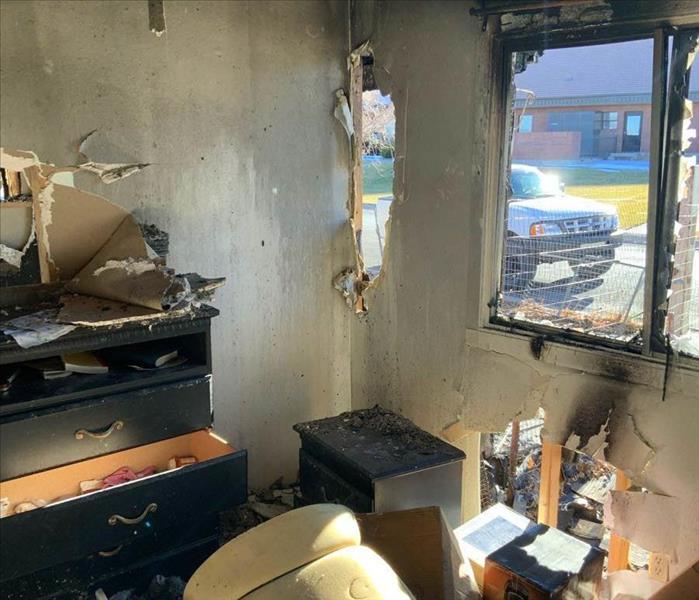 If you have suffered a fire, SERVPRO of Northwest Vegas is here to help. SERVPRO is a trusted leader in the fire and water restoration industry.
If you have suffered a fire, SERVPRO of Northwest Vegas is here to help. SERVPRO is a trusted leader in the fire and water restoration industry.
It's a sad fact that some people will try to rip you off after a fire. But don't let them! Keep your valuables safe with these tips.
Take an inventory of your valuables
If you have important items that are irreplaceable, take photos of them and write down the value of each piece. It's also helpful to keep a record of the serial numbers for all expensive items. Storing these records in a fireproof safe will give you peace of mind in case anything happens to your home or possessions.
Additionally, if there is any chance that an item might be stolen during a fire (e.g., jewelry), it can help to keep this list in another safe area outside the house—just as long as it's accessible by firefighters once they arrive on the scene!
If you have valuable items that are irreplaceable, take photos of them and write down the value of each piece. It's also helpful to keep a record of the serial numbers for all expensive items. Storing these records in a fireproof safe will give you peace of mind in case anything happens to your home or possessions.
Assess their value
The first step in protecting your valuables is to assess their value. Start by thinking about what you keep under lock and key (or behind padlocks, for those with a more rustic approach). List the items, then estimate the market value of each one. If you have an item that is worth a lot more than its purchase price, it’s important to know this so you can make sure it’s covered under your homeowner's insurance policy.
For example, you have a collection of antique pottery that has been passed down through generations of your family. The pieces are valuable but may not be insured because they are considered art, not property. On the other hand, if someone broke into your home and stole these pots while they were in storage at an offsite location—that would be covered by insurance because they're considered personal property within your home even though they're not being kept there at present time.
Store your valuables in a secure place
Storing your valuables in a safe is the most secure way to protect them from fire. If you don’t have a safe in your Las Vegas home already, it’s worth looking into getting one.
You can also keep an inventory of all of your valuables with photographs and descriptions of each item. This will help you know what you lost in case there is any damage done by smoke or water that isn’t covered by insurance.
Photographs & Documents
These items are often easy to overlook when you're preparing for a fire. The photos and documents in your home aren't just sentimental items; they're also irreplaceable. You can always buy new jewelry, but you'll never get back the family heirlooms that were lost when your house burned down.
Take care to keep these items safe, but don't forget about them either! Don't store them in the same place as your valuables—or any other important document or photo. These things deserve their own space and should be given special attention while planning your evacuation strategy. If there's room in the safe deposit box at your bank, consider keeping backups of these items there as well (though this is only an option if it's not too close to home).
Artwork
Use a fire-resistant frame. The matting that is placed behind your artwork is another important factor in protecting it from smoke and fire damage. A variety of materials are used in matting, all of which can catch fire and cause smoke damage to the art. For example, wood frames are highly flammable; canvas and linen mats may also be combustible. If you have original works that require framing, consider using non-combustible materials such as acrylic instead of wood or fabric frames and mats made with polyester rather than cotton or wool fabric.
Keep artwork away from heat sources. Artwork should not be too close to heat sources such as radiators or radiators near windows because any papers contained within the artwork may become warped due to excessive heat exposure over time; this could cause permanent damage if the paper becomes curled or buckled during its lifespan as a finished piece (and therefore unable to be sold).
Take steps to protect the valuable items that you can't replace.
You should always ensure that the items you have stored in your home are properly insured. This way, if something happens to them, they will be replaced with money from your policy. It may also make sense to consider storing some of your valuables in a safe deposit box at a bank or credit union. This is especially true if you have any extremely valuable items like jewelry or art pieces that are irreplaceable and worth more than $100,000.
If you can’t store the item in a safe place or keep it with you at all times, there is still one last option for protecting it from fire damage: buy an appropriate container for it that can withstand the heat! Putting these types of items into fireproof boxes will help protect them from being destroyed by flames during a house fire.
Your belongings are valuable to you. Keep them safe with these tips.
It's important to understand that while insurance can help you recover from the financial impact of a disaster, it's not a perfect solution. It's best to have insurance, but also be prepared for what might happen if you're not insured. Make sure to keep an inventory of your valuables and consider insuring them.
It can be overwhelming to think about what to do with your valuables after a fire. If you have any questions or concerns, please feel free to contact us at SERVPRO of Northwest Vegas. We’re here to help!
Fire Safety Laws That Your Small Business Should Be Following
12/1/2022 (Permalink)
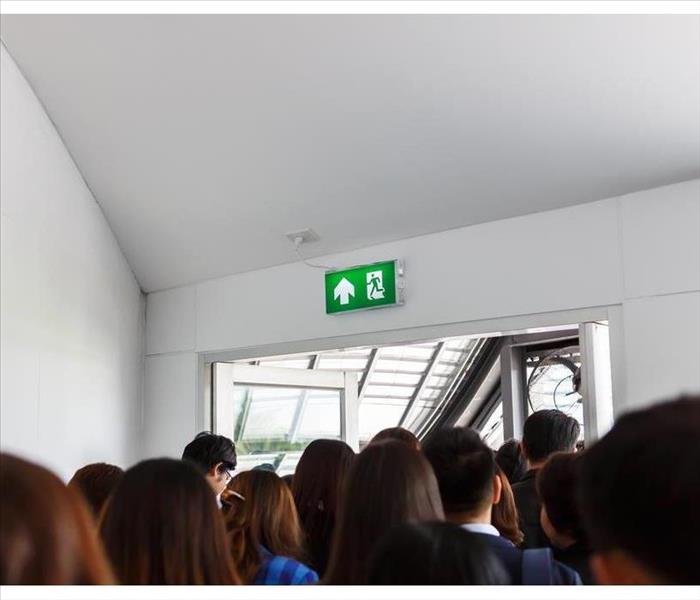 Make sure that you have adequate exits available in case of fire or a natural disaster.
Make sure that you have adequate exits available in case of fire or a natural disaster.
Laws Regarding Fire Safety For Your Small Business
In this article, we will explore some of the fire safety laws that your small business should be following. We'll discuss what OSHA has to say about workplace fire safety, as well as how the NFPA and other governmental agencies enforce their own regulations. We'll also cover some basic rules for keeping your workers safe at home and on the job.
OSHA
When it comes to employee safety, OSHA has provisions for workplace fire safety and safety in the works to protect workers from the dangers of fire. OSHA requires that all workplaces have a written program that includes a fire emergency action plan.
The program should include:
- Training for all employees on how to respond to a workplace fire
- All locations where combustible materials are stored should be inspected by an experienced person who has been trained in inspecting these areas
- A system should be in place to notify authorities if there is a fire or other emergency situation (e.g., 911)
The National Fire Protection Association (NFPA)
The NFPA is the leading fire safety education organization in the United States. On their website, you can find a wealth of information about fire safety laws and regulations that are important for any homeowner or business owner to know.
The NFPA has developed a residential code that has guidelines for residential construction and remodeling of private homes. This code should be followed when constructing or remodeling your home, especially if it's a rental property like an apartment building or hotel room where you live. The code will tell you what types of materials can be used as insulation, how many outlets there need to be per room, as well as other requirements like having smoke alarms installed throughout the house with batteries replaced regularly.
You'll want not only yourself but also anyone else working on site who hasn't taken this course yet done so before attempting any kind of construction activities because failure could result in fines being levied against both groups involved--themselves financially but also professionally due to alleged negligence resulting from a lackadaisical attitude towards safety procedures altogether.
Accessible Exits
You’re responsible for ensuring the safety of your business and its employees. That means complying with all fire safety laws, including making sure that you have adequate exits available in case of fire or a natural disaster.
To meet this requirement, first, make sure there are enough exits for everyone in your building. The number of people who can safely exit the building must be greater than the number who can safely remain inside during an emergency situation.
Next, clearly mark all exits with signs that indicate where they lead and how to reach them—and make sure those signs are visible from anywhere inside your building so that everyone knows how to find their way out if there's ever an emergency situation.
Finally, ensure that all accessible exit routes allow easy passage through them at all times by keeping them clear of obstructions such as furniture or equipment; this includes keeping stairways clear at all times as well.
Locate Fire Extinguishers
You should know where all the extinguishers are located in your building and how to use them. If you see a fire, don't try to put it out yourself—call 911 and tell them where it is (the dispatcher will ask for this information).
If there's a fire that you don't know how to handle, do not use an extinguisher on it! Get everyone away from the area immediately, then call 911 and let them know what happened so they can send firefighters to help if necessary.
The Importance of Fire Safety Laws
Fire safety laws help protect your business from fire damage. You may be wondering how this is possible, but the answer is simple: by following fire safety laws, you will be ensuring that your business (and those who work for it) are safe and sound when it comes to protecting themselves from a potential fire emergency.
Fire safety laws are an important part of any business. They help keep your company and employees safe from fire damage. If you are not familiar with the fire safety laws in your area, it is time to take a look at them now. It's never too late to learn more about how dangerous fires can be if they aren't taken seriously by those who own property or work in certain industries where there is a higher risk for fire hazards.
If your business is impacted by a fire, give SERVPRO of Northwest Vegas a call!
3 Tips for Gas Range Cleaning
8/25/2022 (Permalink)
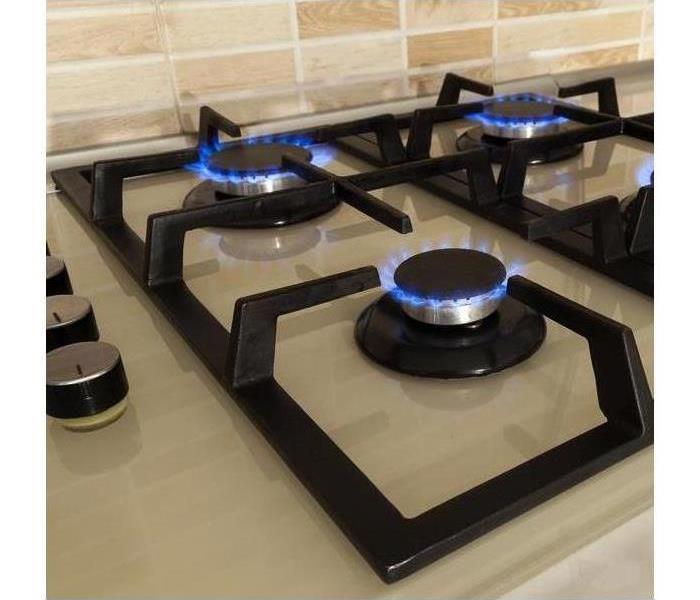 Having a gas range is often a source of pride for many home cooks
Having a gas range is often a source of pride for many home cooks
Below Are Three Steps To Get A Deep, Safe Clean
If your home in Northwest Las Vegas, NV, has a gas range, cleaning it may seem like a lot of extra work. Since they don’t have the smooth surface its electric counterpart, food debris can build up and result in the need for a fire damage and restoration professional. Although range cleaning may not be a fun task, it is an important one. Below are three steps to get a deep, safe clean.
1. Grates
Before anything can happen, the grates need to be removed. Although they are heavy and durable, they still are susceptible to buildup from spills and residue. If they haven’t been cleaned in a while, the buildup could be quite thick and require significant scrubbing. The grates should be placed in the sink or bucket filled with warm, soapy water to soak. After sitting for a while, remove them and cover them with a cleaning paste of water and baking soda. Leave on for about 20 minutes and rinse.
2. Fuel Ports
If a smoke smell has been coming from your gas range, there is a chance that some debris has made its way into the fuel ports. Located under the burner cap, these ports are what let the flames out. If they get clogged, it can result in unevenly distributed heat or debris burning. These can be wiped down and inspected for any clogs. A small device, such as the end of a paperclip, may help clear any debris.
3. Surface
With the grates off, you can thoroughly clean the surface. A simple solution of soapy water or a mix of baking soda and vinegar can be used to wipe down the surface. Ensure a soft sponge or cloth is used and not something abrasive. A soft-bristled toothbrush is also a helpful tool to get off heavy residue or reach awkward areas that need a good cleaning.
Having a gas range is often a source of pride for many home cooks, but it also means taking the extra time to keep it clean.
Which Smoke Detector Should You Install?
5/26/2022 (Permalink)
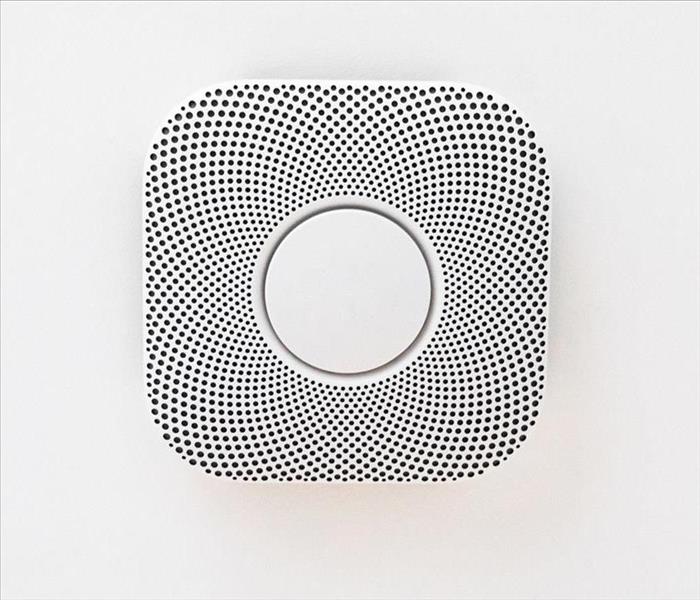 A smart detector sends alerts to a phone or tablet so that owners can seek aid whether in the house or not.
A smart detector sends alerts to a phone or tablet so that owners can seek aid whether in the house or not.
Which Devices Should Owners Buy?
Fires give little, if any, warning. Within minutes a tiny spark can turn into a major blaze, destroying a home. Homeowners in Las Vegas, NV, do have options, though, to reduce the harm, gaining early warning and mitigating damage. With the right smoke alarm installed in various rooms, receive alerts to escape and contact authorities for help. Which device should owners buy? The following are four choices that could work for your place.
1. Smart Detectors
Traditionally, a smoke detector sends out a wail when smoke is sensed. The loud noise alerts those inside to get out and call 911. There are several issues with this concept, however. These units rely on someone being home and in the vicinity of the alarm. Modern units add in smart technology. These detectors send alerts to a phone or tablet so that owners can seek aid whether in the house or not. In addition, some systems message about carbon monoxide levels and low battery levels.
2. Ionization Detectors
Some fires start up immediately. They have little smoke, but the blaze is intense. An ionization smoke alarm catches these well. Install them anywhere groups gather or in locations with heat sources or appliances.
3. Photoelectric Detectors
This technology senses smoke quickly, a quality useful in identifying smoldering fires. It isn't as swift at picking up signs of fast flames. Consider adding this to a kitchen area.
4. Dual-Sensor Detectors
The best of both worlds, these detectors combine ionization and photoelectric awareness. For fire safety purposes, it's best to install these for premium protection. They are instrumental in hallways and bedrooms. If people are sleeping, the alarm is imperative to understanding the gravity of the situation. This addition provides an extra measure of security. Some smart alarms pair with these or have both capabilities.
Ensure that each smoke alarm functions correctly. Install it properly and be sure that they are in the correct location. Early notification is your way to safeguard your family and property.
Dealing with Water Damage After a Fire
5/22/2022 (Permalink)
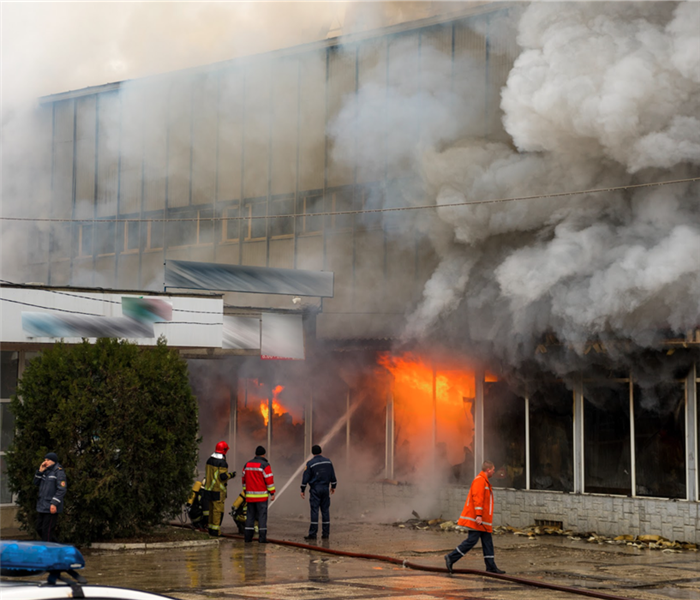 Commercial fire damage in Northwest Las Vegas, NV
Commercial fire damage in Northwest Las Vegas, NV
Importance Of Hiring Water Cleanup Professionals After a Fire
When you think of fire damage, you may think about ashes, soot-covered surfaces, damaged furniture and ruined appliances. However, you may not think of the extensive water damage that can occur. When you consider the sources of water that occur due to the fire itself as well as the acts to put it out, you will understand the importance of hiring water cleanup professionals right away.
Sources of Water Damage
Water that occurs due to a fire can come from a variety of sources. These include:
- Burst water pipes due to the excessive heat
- Fire sprinkler systems
- Firehoses while firefighters are putting the fire out
Steps to Take to Assist with Water Cleanup
Water damage can have numerous negative consequences. One of the consequences is mold growth, which can begin to flourish within 24 hours, so the sooner you begin fire cleanup, the better. The first thing you should do is contact a fire restoration company, as these professionals know exactly what to do with fire and water damage.
This team will pump out any standing water and set up fans and dehumidifiers where it is safe to do so. They will also assist with smoke cleanup and a myriad of other restoration services.
Although the restoration team will do most of the work, you may be able to take some steps to minimize water damage while waiting for them to arrive. Only go back inside the building if it is safe to do so. If it is, open as many doors and windows as possible to air out the space. This includes any cabinet doors. Rugs should be removed to prevent further damage to the floor, and you can place foil underneath furniture legs to prevent water seepage from the floor.
Dealing with a commercial fire in Northwest Las Vegas, NV, is stressful. However, it is imperative you begin fire and water cleanup as soon as possible to mitigate damage.
What to Do About Smoke Odor Damage After a Fire
3/3/2022 (Permalink)
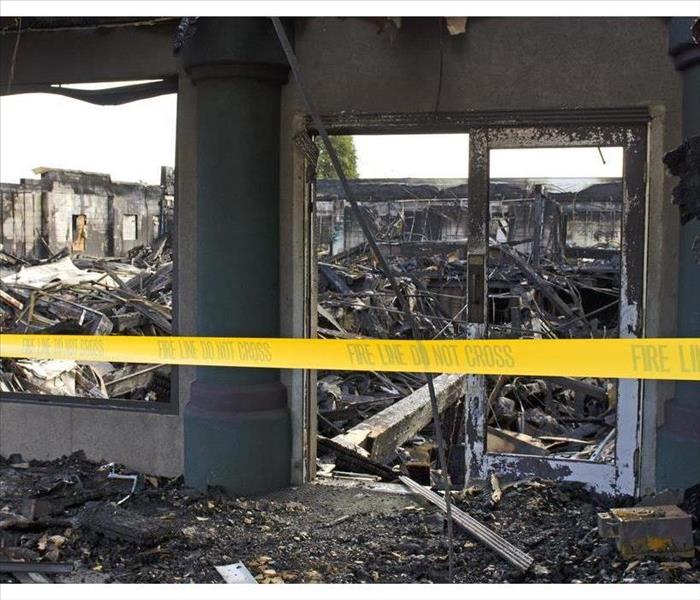 Commercial fire damage in Northwest Las Vegas, NV.
Commercial fire damage in Northwest Las Vegas, NV.
After a fire, What Should You Do About Smoke Odor Damage?
If your business in Northwest Las Vegas, NV, has been struck by a fire, it may be damaged in many different ways. Aside from structural damage, damage from smoke odor may also be present and can severely harm your commercial building. If an odor from residual smoke has spread throughout your building, it’s crucial to schedule a smoke cleaning with a professional. Here are some simple steps you can take to minimize the damage before help arrives.
Clean HVAC System
If you allow smoke particles to linger in your HVAC system, they can continue to affect the air quality of your building. Be sure to do the following as soon as possible to remove any residual smoke from your ventilation system:
- Replace air conditioning filters
- Have HVAC system inspected
- Contact a professional to clean out air ducts
It’s vital to take action immediately if you suspect smoke damage in your business. Failing to address lingering smoke can cause it to further permeate the air and harm your commercial building.
Remove Damaged Objects
All items in your building that have been damaged by smoke must be removed from the affected area right away. This may include any window screens, cushions or rugs that are found around your building. Anything that can be washed must be washed as quickly as possible in order to free it of smoke odor. However, a professional smoke cleaning should be conducted if furniture items such as desks and couches have been damaged.
Clean Carpets
Removing smoke from carpets is a difficult step as the particles can become embedded in the material. To alleviate the odor, try cleaning your carpets with baking soda and then let it sit for a few hours. You can also choose to steam clean the carpeting, although this should be done with care. It’s best to avoid damaging any aspects of your building if possible.
When your commercial building in Northwest Las Vegas, NV, is affected by smoke damage, taking immediate action is vital. Contact professional restoration services for a smoke cleaning and have your business restored in no time.
What You Should Know About Boarding Up Your Home in an Emergency
2/10/2022 (Permalink)
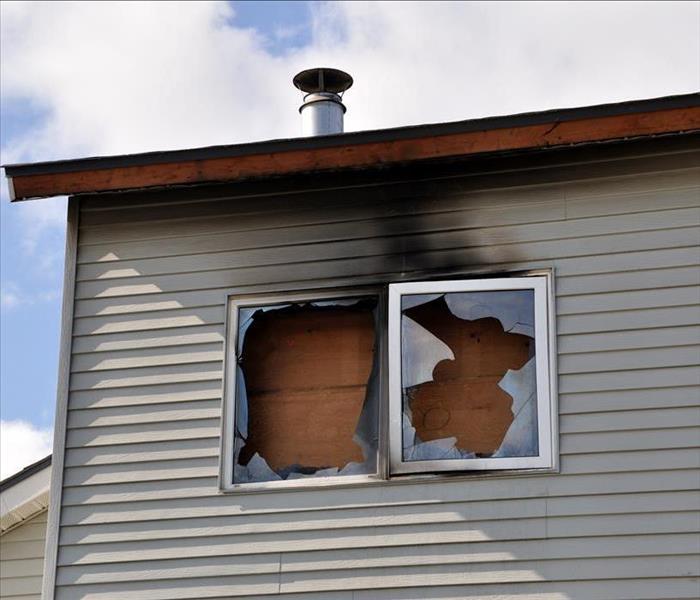 When you board up your home following fire damage, you are preventing additional problems.
When you board up your home following fire damage, you are preventing additional problems.
If you live in hurricane country, you may be familiar with emergency board-up services to protect your home from damage. But did you know there are lots of other good reasons to board up your home’s windows and doors in Northwest Las Vegas, NV? Consider a few of them and whether you might take advantage of it to safeguard your home.
Benefits of Boarding Up Your Home
- Prevent additional damage from weather or animals
- Reduce the risk of property loss from theft and looting
Helps keep your insurance coverage by showing them you are taking appropriate measures to prevent more damage or theft - Reduce your risk of liability by keeping people and pets out and preventing injury
Keep Your Home Safe and Your Insurance Intact
When you board up your home following fire damage, you are preventing rain, wind, hail or snow from causing additional problems. You are also keeping rodents, birds and other pests from taking up residence or contaminating the area. Perhaps one of the greatest problems is looting. When someone unscrupulous discovers your home is not being lived in and has easy access, you are in danger of them salvaging anything they can get their hands on to pawn or sell on the streets, or even from squatting on your property. Boarding up your doors, windows, or openings caused by fire damage to show your insurance agent that you are doing everything in your power to prevent further damage.
Don’t try to take on the job yourself - a board up can be an overwhelming task and would be best done by an emergency board up service in Northwest Las Vegas, NV. They can make sure everything is secure and can avoid causing additional damage by ensuring all fasteners go into secure places. They may also use tarps where appropriate. Whether you are doing the whole house or just an opening or two, boarding up can save a lot of grief.





 24/7 Emergency Service
24/7 Emergency Service







